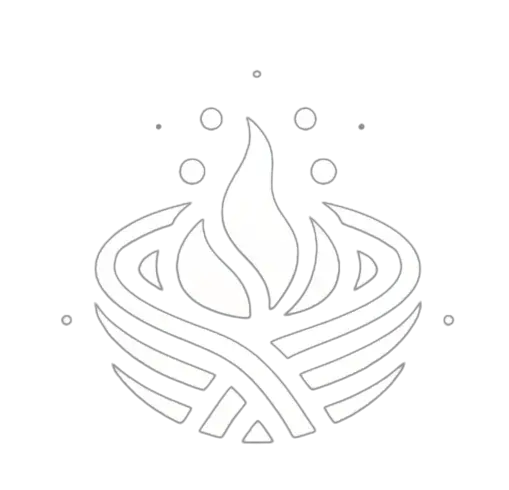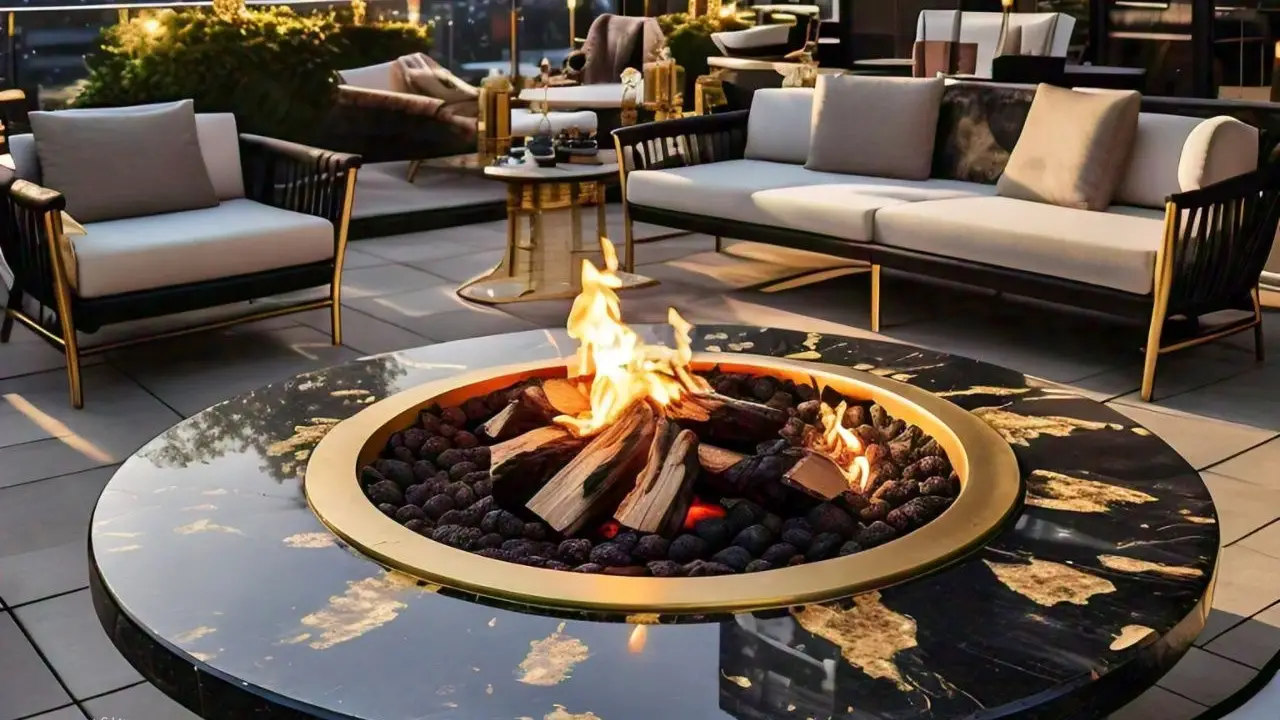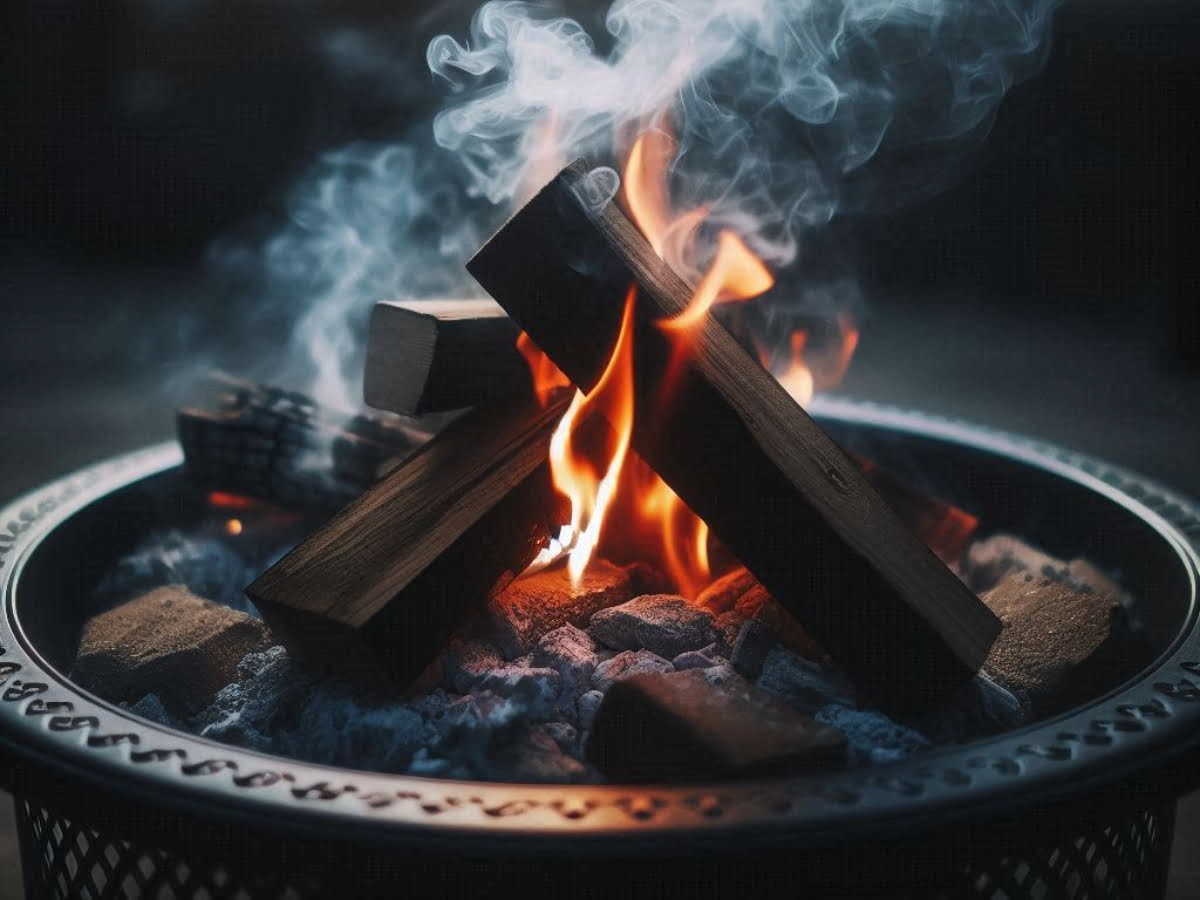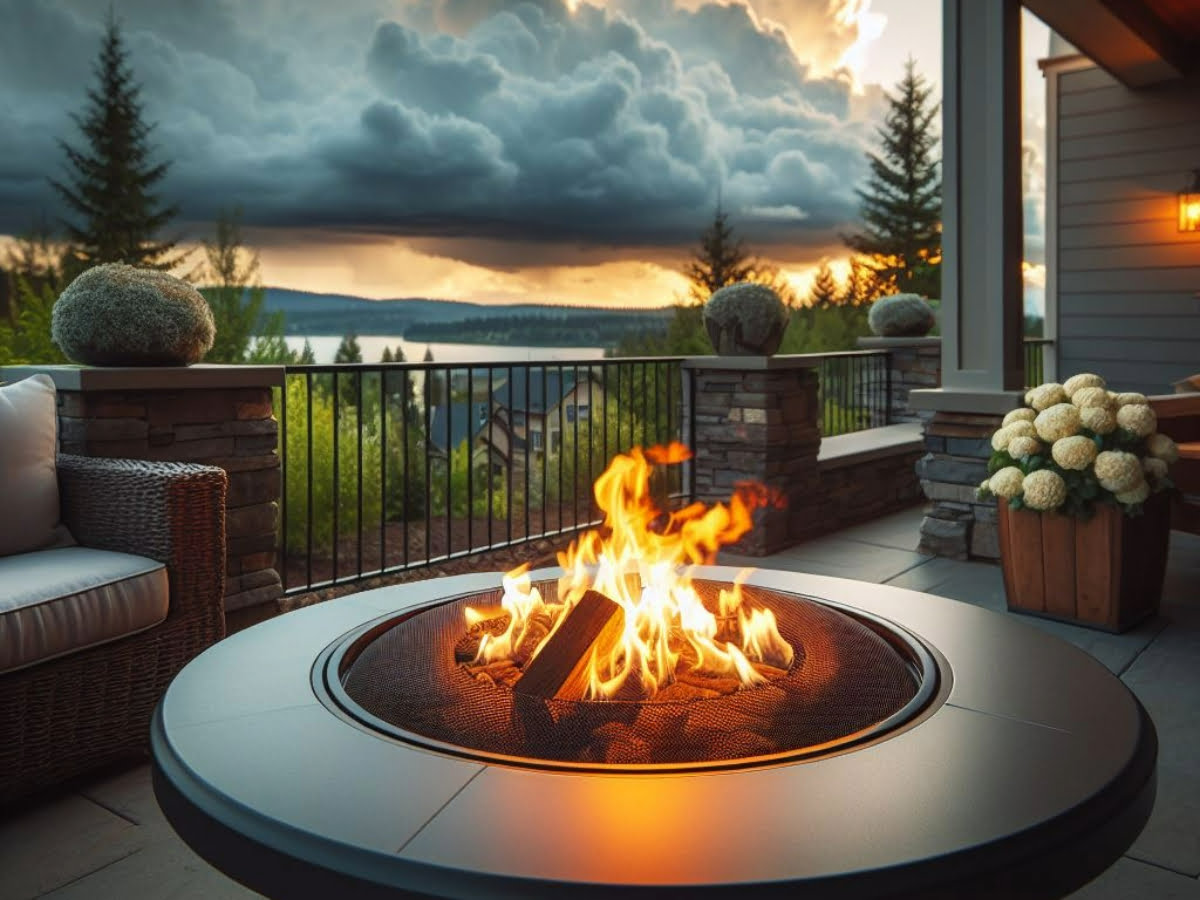
The crackling of firewood. The company of beloved friends. The divine aroma of s’mores roasting. Picture the perfect evening, sabotaged by everyone’s greatest nemesis: the fire ban. Worry not, fellow fire pit aficionados! Today, we’re talking about all about things propane fire pits. Are they the answer to your fire-restricted conundrums? Do you cherish the flames in your fire pit as much as your family? Would you do anything to keep those folks safe? This blog post will guide you through the various legalities to ensure a safe and cozy evening, even if you can’t have an open wood fire. Pull up a cup of something warm, sit in your best chair, and let’s unlock the secrets of fire pit fun while keeping everyone safe from harm.
Fire Bans and Regulations
Fire bans are important in maintaining a low risk of wildfire and the safety of the public during periods of high fire danger. A fire ban is a formal declaration by authorities banning all outdoor fires that, particularly in dry or otherwise dangerous conditions, may be prevented. Generally, fire bans are issued due to a variety of reasons, such as weather, vegetation, human activity, and the preservation of wildlife hotspots or ecosystems on the land.
Common reasons for fire bans are dry, hot weather and little humidity. Windiness, dry vegetation, and the potential for accidental fires to start from human activities such as campfires, outdoor cooking, and burning debris are also large factors. During fire bans, there are regulations in place that prohibit activities that could ignite fires, or help their spread. More often than not, these bans coincide with the banning of open flames, fireworks, use of burn barrels, use of incinerators, and the use of any fire pit or outdoor heating device that is fueled with a combustible substance.
Always keep in mind fire bans and the accompanying regulations or exemptions for specific activities. Regulations are there to prevent fires from starting, to protect natural resources, and to avoid fines or legal trouble. The health of any major ecosystem depends on the responsible behavior of the people who use it, so everyone should know what fire bans are in place and respect them. If you’re aware of the reasons for, and comply with, fire bans, we can minimize the risk of wildfire together and keep our environment safe for all the generations that will come after ours.
Understanding Fire Ban Levels
Authorities in wildfire-prone regions issue fire ban levels for public awareness. These levels give the public an idea of the magnitude of the fire, fire danger and bans that come with it. For propane fire pit users, knowing the fire ban level eliminates confusion as to what can and cannot be done.
Stage 1 Fire Restrictions:
At this level, the fire danger is moderate and fire restrictions may only limit fires in undeveloped areas and require a fire permit. Most likely, propane fire pit use is allowed; however, users should always use caution and follow local rules.
Stage 2 Fire Restrictions:
As fire danger gets higher, Stage 2 fire restrictions are imposed. These often include the total ban of open flames, such as campfires and charcoal grills, in designated areas. In other regions, propane fire pits might still be allowed in some areas, but it is possible that there will be more scrutiny, extra regulations, and even a prohibition from using your fire pit during certain times of the day or in specific locations.
Stage 3 Fire Restrictions (Full Fire Ban):
Finally, in the situation where fire danger is the highest and there is extreme risk to public safety as a result, there might be a complete ban on all open flames, including propane fire pits, within the entire region in question. In Stage 3 you can assume that your fire pit will be included in the ban and local authority might be more strict in issuing penalties to violators, even in the form of a criminal charge, just because the risk of wildfires is so high.
Propane Fire Pits & Fire Bans: The Legality
The legality of propane fire pits during fire bans depends on where in the country you are using them. Different regions have vastly different fire ban regulations , and if you are using your fire pit in an area with bans in place, you must know what the regulations are in your area.
Variation in Fire Ban Regulations
Fire bans can vary from location to location, depending on the weather and climate, the types of vegetation, and the area’s history of wildfires. In many cases, what is allowed in one area where a fire ban is issued may not be allowed in another during the same restrictions. It is essential that to ensure you are compliant, you do your own research and find the local fire ban regulations for the location or municipality where you are situated.
Importance of Local Verification:
The definitive answer with respect to the allowable use of a Propane Fire Pit during a fire ban can be obtained from local authorities staffed by your local municipal government, which includes your local fire department. Many, if not all local fire department websites will have pages or even frequently asked questions section on fire bans that will outline relevant information you may find helpful. Even still, give them a call. You are likely to get the most accurate advice about the use of a propane fire pit during a fire ban by speaking to the fire department district where you are considering using your propane fire pit
Commonalities in Fire Ban Guidelines:
Although fire ban regulations differ from place to place, there are some commonalities. For one, open wood and charcoal fires are often forbidden to reduce the likelihood of sparking a wildfire. Since propane fire pits are closed and run on a non-polluting fuel source, it is relatively common for homeowners and tourists to be allowed to operate them during fire bans.
Adherence to Regulations:
To avoid wildfires and any accidents, it is very important to follow the fire ban rules. Suppose your answer to the question “are propane fire pits allowed during a fire ban” is “yes” and you are using a propane fire pit in the regulated periods? In that case, you still need to make sure you are completely following the rules and taking all the necessary safety precautions while using your fire pit. Ultimately, learning about the conflict between regional fire ban rules, local fire officials, and the requirements set by CSA is very helpful when determining the legality of using a propane fire pit during a fire ban season.
Are Propane Fire Pits Permitted
In most instances, you can still use a propane fire pit during a fire ban. This is because the fire from these devices is typically very controlled. In addition, the fuel used is clean-burning, so you won’t be generating a lot of smoke. Even if propane fire pits are allowed during a fire ban, it’s important to ensure you use them responsibly. This means that you need to operate them in a safe manner and in line with any guidance or restrictions imposed by your local government. Ultimately, your goal should be to minimize the possibility of an accidental fire occurring. You should aim to put your fire pit on the ground or another non-flammable surface and stripe away nearby vegetation before you use it. It’s also a good idea to keep a fire extinguisher nearby. Never leave your fire pit unattended and fully extinguish the flame before leaving.
Ultimately, while propane fire pits can often be used during fire bans, it’s crucial to prioritize safety and adhere to any regulations in place. By staying informed about local fire restrictions and practicing responsible fire pit usage, individuals can continue to enjoy the warmth and ambiance of their propane fire pits while contributing to fire prevention efforts during periods of heightened fire risk.









